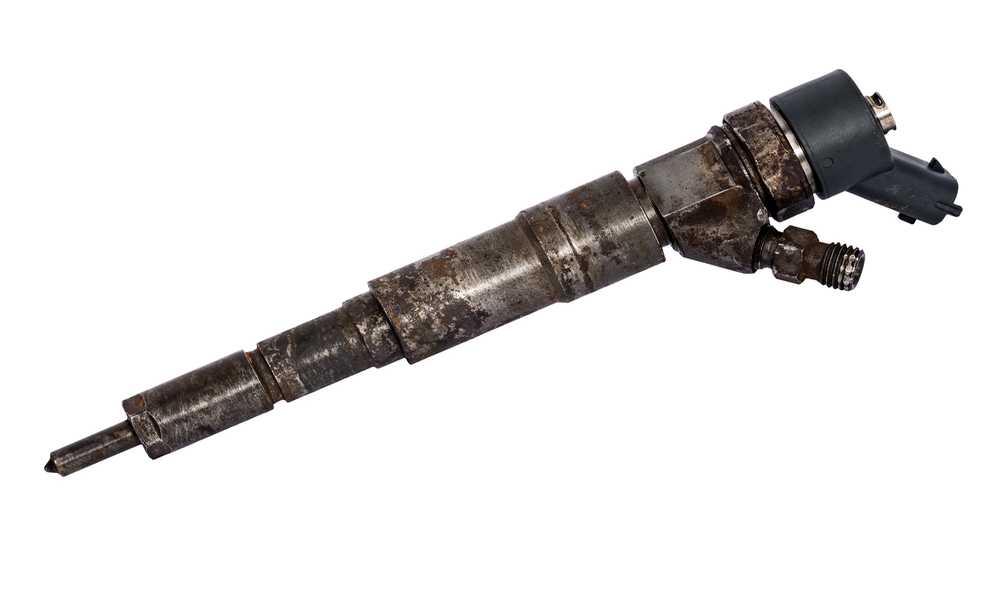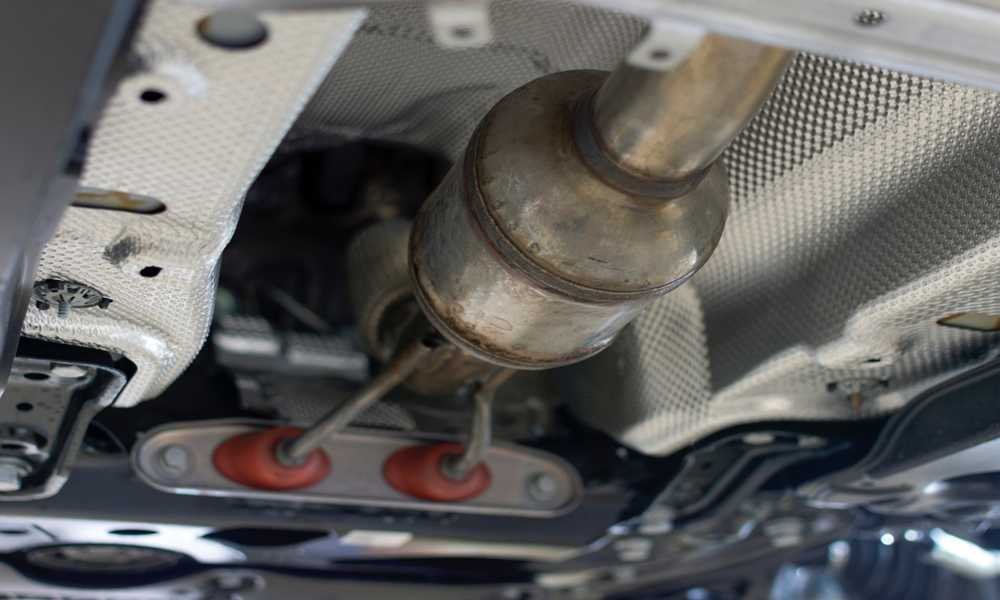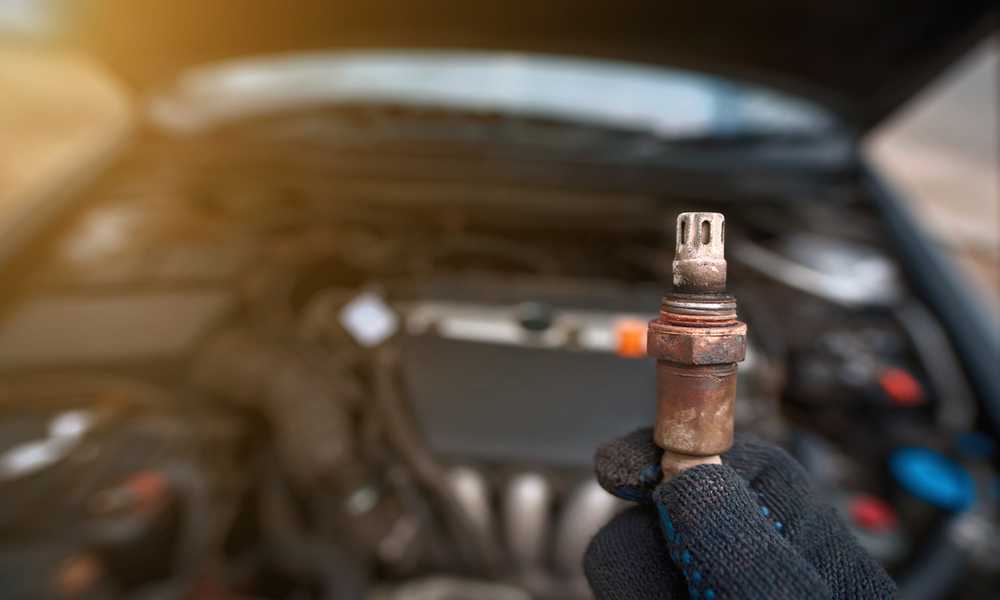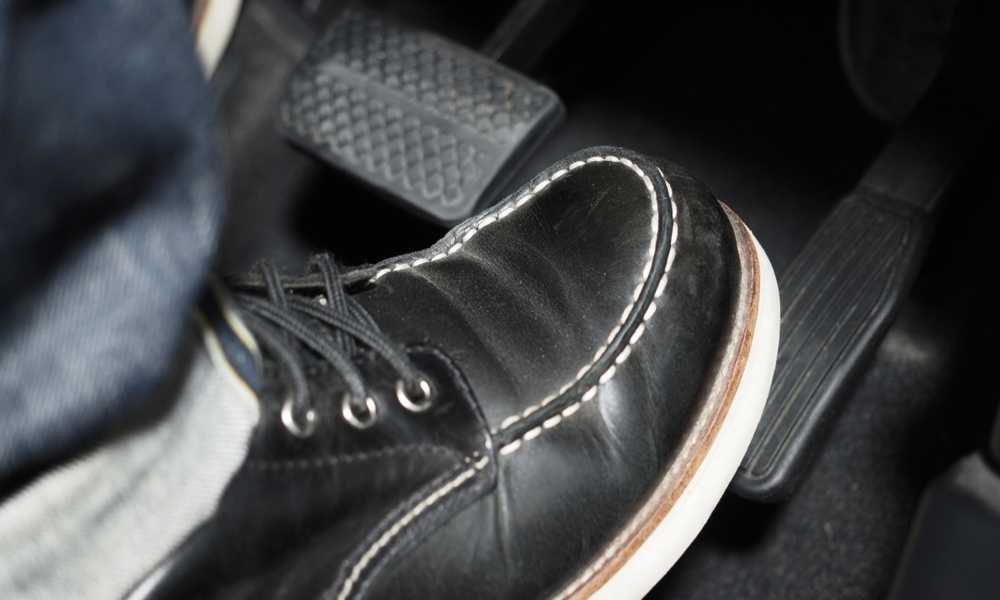Have you ever been driving on the road and suddenly noticed your check engine light flashing, paired with a shaking car that won’t accelerate? It’s a frustrating situation that can leave any driver feeling stranded. But don’t panic just yet! There are numerous reasons why this could be happening, and luckily most of them are fixable. In this article, we’ll cover 15 possible causes for how to check engine light flashing car wont accelerate. Plus, we’ll provide solutions to help get you back on the road safely in no time!
What causes the check engine light and the car shaking?
The check engine light is an essential warning tool that lets you know when something isn’t quite right with your car. When the light starts flashing and your vehicle begins shaking, it usually indicates a more severe problem. But what exactly causes this issue?
One potential cause could be a bad fuel injector. If the fuel injector is stuck open or closed, it can affect your car’s acceleration and cause both the check engine light and vibration.
Another possible culprit is bad ignition coils. Ignition coils are responsible for creating sparks in each of your car’s cylinders, so when they start to fail, it can lead to misfires and rough idling.
If you haven’t changed your spark plugs recently, they could also be to blame for the check engine light and shaking sensation. Worn out spark plugs can trigger misfires in one or multiple cylinders leading to performance issues.
In some cases, a faulty variable valve timing system (VVT) may also cause these symptoms. The VVT helps regulate airflow through the engine by adjusting valve lift duration but if not functioning well will impact power output leading to shake during acceleration.
Poor oil quality might contribute as well since old oil lacks proper lubrication causing friction on parts leading them to wear faster than normal resulting in diminished performance while driving.
The list of causes continues beyond these four reasons mentioned above but diagnosing which reason may require consulting with an auto mechanic or using an OBD-II scanner yourself for further investigation
1. Bad Fuel Injector

When your car’s check engine light is flashing, it can be difficult to determine the root cause of the problem. One common issue that can lead to a flashing check engine light and lack of acceleration is a bad fuel injector.
Fuel injectors are responsible for delivering gasoline into your car’s engine in precise amounts. When they malfunction, your car may experience problems with acceleration or even stall out completely.
There are several reasons why fuel injectors can go bad. Over time, they can become clogged with dirt and debris from low-quality gasoline or improper maintenance. Additionally, wear and tear on the injector itself can cause it to fail.
If you suspect that a faulty fuel injector is causing your car’s issues, it’s important to have it diagnosed and replaced as soon as possible by a certified mechanic. Ignoring this problem could lead to further damage down the line.
In order to prevent future issues with your fuel injectors, make sure that you use high-quality gasoline and follow proper maintenance procedures recommended by your vehicle manufacturer. This includes regular oil changes and using reputable fuel system cleaners when necessary.
2. Bad Ignition Coils
Bad ignition coils can cause the check engine light to flash and your car to shake or hesitate during acceleration. The ignition coil is responsible for converting the battery voltage into a high-voltage spark that ignites the fuel in your engine. When it goes bad, it can lead to misfires, reduced power and poor fuel economy.
If you suspect that your ignition coil is faulty, you should have it checked as soon as possible by a qualified mechanic. They will be able to diagnose the problem using specialized tools and replace any defective components if necessary.
Regular maintenance can help prevent issues with your ignition coils from occurring in the first place. This includes replacing worn-out spark plugs, cleaning dirty air filters and checking for damaged wires or connectors.
Ignoring problems with your ignition coils can lead to more serious issues down the line, including damage to other parts of your engine such as cylinders or pistons. So act fast when you notice signs of trouble!
3. Bad Spark Plugs
Bad spark plugs can also be a reason for the check engine light flashing and your car not accelerating properly. Spark plugs are responsible for igniting the air-fuel mixture in your engine’s cylinders, powering up your vehicle. If they wear out or get damaged over time, it can lead to misfires and reduced power output.
One of the most common symptoms of bad spark plugs is rough idling and poor acceleration. You may notice that your car struggles to pick up speed when you press down on the gas pedal, making it difficult to keep up with traffic flow.
Replacing spark plugs is a relatively easy fix that you can do yourself if you have some basic mechanical skills. However, if left unchecked for too long, bad spark plugs can cause damage to other components in your engine such as catalytic converters or oxygen sensors.
Regular maintenance checks will help identify any issues with your spark plug performance before they become severe problems that require costly repairs.
4. Bad Variable Valve Timing System (VVT)
The variable valve timing (VVT) system is responsible for controlling the opening and closing of the engine’s valves. When this system fails, it can lead to a flashing check engine light and poor acceleration.
One common cause of VVT failure is clogging due to dirty oil. The VVT solenoid relies on clean oil to function properly, so regular oil changes are crucial in preventing VVT issues.
Another potential cause of VVT failure is a faulty sensor or actuator. These components communicate with the car’s computer to adjust valve timing, so when they malfunction, it can throw off the entire system.
In some cases, physical damage to the camshaft or other related parts can also result in VVT problems. This type of issue may require more extensive repairs or even engine replacement.
Regardless of the specific cause, addressing a bad variable valve timing system as soon as possible is essential for maintaining your car’s performance and avoiding further damage.
5. Poor oil quality
Poor oil quality is one of the reasons why your check engine light may flash and your car won’t accelerate. Over time, the oil in your car can break down due to high temperatures, contaminants, and poor maintenance. If you don’t change your oil regularly or use low-quality oil, it can cause a buildup of sludge that reduces its effectiveness.
When the oil becomes too thick or dirty, it can lead to reduced lubrication and increased friction in the engine components. This means that when you press on the gas pedal, there’s not enough power going through to make the car accelerate properly.
To avoid this issue, it’s important to have regular oil changes using high-quality synthetic oils recommended by your manufacturer. You should also follow their guidelines for how often you need an oil change based on factors like driving conditions and mileage.
Ignoring poor quality oil could lead to more significant problems with your engine over time if left unaddressed. So never underestimate its importance!
6. Bad engine sensors
Bad engine sensors can cause your check engine light to flash and your car to shake. Sensors, such as the oxygen sensor and mass airflow sensor, work together with your car’s computer to regulate fuel injection and other important functions. When these sensors fail or become faulty, it can lead to a loss of power and acceleration.
One common symptom of bad engine sensors is a rough idle or stalling at low speeds. This may be due to an incorrect reading from the oxygen sensor which measures the amount of oxygen in the exhaust system. Another sign is decreased fuel economy as a result of incorrect readings from the mass airflow sensor.
In order to diagnose whether you have bad engine sensors, it’s important to take your car into a certified mechanic who can perform diagnostic tests using specialized equipment. If they find that one or more sensors are malfunctioning, they will replace them with new ones.
It’s crucial not to ignore any warning signs related to bad engine sensors as this could lead to further damage down the line. Regular maintenance checks can help prevent issues with your car’s sensors before they become major problems that affect performance and safety on the road.
7. Vacuum leaks after MAF sensor
Vacuum leaks after the MAF sensor can cause a check engine light to flash and prevent the car from accelerating properly. The MAF (mass airflow) sensor measures how much air is entering the engine, which helps determine how much fuel needs to be added for combustion.
If there is a vacuum leak after the MAF sensor, it will allow unmetered air into the engine, causing an imbalance in fuel-to-air ratio. This can result in rough idling or stalling when at a stop.
Common symptoms of vacuum leaks include hissing sounds coming from under the hood, reduced power output and poor acceleration.
To diagnose if there’s a vacuum leak present, mechanics often use smoke testing. Smoke is introduced into the intake manifold while monitoring whether any escapes through cracks or gaps in hoses.
Fixing this issue usually involves replacing any damaged hoses or gaskets that are allowing air to enter where it shouldn’t. If left unchecked though, vacuum leaks can lead to more serious problems such as overheating or even engine failure.
8. Bad EGR valve
One possible blog section about “8. Bad EGR Valve” could be:
A bad Exhaust Gas Recirculation (EGR) valve can also cause the check engine light to flash and the car not to accelerate properly. This valve is responsible for redirecting some of the exhaust gases back into the engine, in order to reduce emissions and improve fuel efficiency. However, if it gets stuck open or closed, it can disrupt this process and affect the performance of your vehicle.
When an EGR valve fails, you may notice symptoms such as rough idling, stalling, hesitation or surging during acceleration, reduced power or mileage, excessive heat or noise from the engine bay. These issues can be caused by carbon buildup on the valve’s surface or inside its passages.
To diagnose a bad EGR valve, you can use a scan tool that displays live data from your car’s computer system and checks for any error codes related to this component. You can also inspect the valve visually and clean it with a specialized cleaner that dissolves carbon deposits without damaging other parts.
If cleaning doesn’t fix your problem or if you have confirmed that your EGR valve is faulty, you will need to replace it with a new one that matches your make and model. A professional mechanic should perform this task unless you have experience working on engines yourself.
By addressing a bad EGR valve promptly, you can prevent further damage to your vehicle’s systems and ensure optimal performance in terms of emissions compliance and fuel economy.
9. Bad EVAP valve
A bad EVAP valve is one of the common reasons why your check engine light may be flashing and your car won’t accelerate. The EVAP (Evaporative Emission Control System) is responsible for controlling the emission of fuel vapors from the vehicle’s fuel tank.
If the EVAP valve fails, it can cause a variety of issues such as difficulty starting the vehicle, poor acceleration, and even stalling. This is because a malfunctioning valve can allow air to enter into the fuel system which disrupts its operation.
Replacing a faulty EVAP valve typically involves inspecting and testing various components within this system to pinpoint exactly where the problem lies. Once identified, you will need to replace any damaged or worn parts before installing a new valve.
Ignoring these issues can not only lead to more expensive repairs in future but also pose safety risks while driving on roads. Therefore, if you experience any of these symptoms related to bad EVAP valves make sure that you get them checked out by an experienced mechanic immediately.
10.Faulty catalytic converter

The catalytic converter is an essential component of your car’s exhaust system that helps reduce harmful emissions. However, a faulty catalytic converter can cause the check engine light to flash and make it difficult for your car to accelerate properly.
One common issue with a faulty catalytic converter is when it becomes clogged. This happens when debris or pollutants accumulate in the converter over time and restrict the flow of exhaust gases. As a result, your car may experience reduced power and acceleration.
Another issue is when the internal components of the catalytic converter break down or become damaged due to extreme temperatures or wear and tear. In this case, you may notice unusual noises coming from your car’s exhaust system.
If you suspect that your catalytic converter has gone bad, take your car to a professional mechanic as soon as possible. A skilled technician will be able to diagnose any problems with precision before recommending repairs or replacement options.
Ignoring issues with your catalytic converter could not only damage other parts of your vehicle but also increase harmful emissions into the environment. So, if you want to ensure both proper performance and safety on the road while protecting our planet at large, act quickly if there are any signs of trouble with this critical component!
11.The gas cap is loose or faulty
One of the most common causes of a flashing check engine light and car not accelerating is a loose or faulty gas cap. The gas cap is an important part of your vehicle’s fuel system as it helps maintain proper pressure within the fuel tank.
If the gas cap is loose or damaged, air can enter the fuel tank which disrupts this pressure balance and triggers your car’s onboard diagnostic system to turn on the check engine light. This will cause your car to shake when accelerating and may prevent it from reaching higher speeds.
The solution here is quite simple: make sure that your gas cap is tightened properly after refueling. If you notice any damage to the cap itself, replace it immediately with a new one that fits perfectly for your vehicle.
Ignoring this issue may lead to more severe problems in other parts of your vehicle’s fuel system, which could result in costly repairs down the line. So always ensure that you have a tight-fitting and fully functional gas cap before hitting the road!
12.Faulty charging system
A faulty charging system can also trigger the check engine light and cause your car to shake or have a hard time accelerating. The charging system is responsible for keeping the battery charged while the car is running, so if it’s not working properly, you may experience problems with starting your car or keeping it running.
One of the most common causes of a faulty charging system is a bad alternator. The alternator generates power that charges the battery and runs electrical systems in your car, such as headlights and air conditioning. If your alternator fails, these systems will no longer work correctly.
Another potential culprit could be a malfunctioning voltage regulator which regulates how much charge goes into the battery from the alternator. A failing voltage regulator can overcharge or undercharge the battery leading to further electrical issues.
It’s important to get your charging system checked out by a professional mechanic because other components like fuses, belts and wiring might need replacing too depending on what caused this issue in particular.
If you notice any issues with lights dimming at idle or difficulty starting up – all signs pointing towards an underlying problem within this crucial area – don’t hesitate to seek professional assistance right away before things escalate more severely!
13.Mass airflow sensor
The Mass Airflow Sensor (MAF) is responsible for measuring the amount of air entering the engine and providing this information to the vehicle’s computer system. This data is then used to calculate the correct fuel-to-air ratio, ensuring that your car runs smoothly.
If your MAF sensor fails or becomes dirty, it can cause a variety of issues with your car’s performance. One common symptom is a flashing check engine light accompanied by poor acceleration.
A dirty or faulty MAF sensor can also cause rough idling, stalling, and decreased gas mileage. It’s important to address any issues with your MAF sensor as soon as possible in order to prevent further damage to other components of your engine.
Cleaning or replacing the MAF sensor may be necessary depending on its condition. Regular maintenance and cleaning can help prolong its lifespan and ensure proper function.
If you suspect an issue with your Mass Airflow Sensor, it’s best to seek professional help from a qualified mechanic. They will have the proper tools and knowledge needed to diagnose and repair any problems related to this component.
14.The engine not warmed up
One common reason for a flashing check engine light and lack of acceleration is an engine that hasn’t warmed up yet. When you first start your car, the engine will take some time to reach its optimal operating temperature.
During this warm-up period, the fuel injection system may be sending too much fuel into the engine, leading to misfires and hesitations. This can cause the check engine light to flash and your car to struggle with acceleration.
To prevent this issue, it’s important to let your car idle for a few minutes before driving off in cold weather. This allows the engine oil to warm up and lubricate all of the moving parts properly.
If you’re experiencing issues with your check engine light flashing while accelerating but only when starting out on a cold morning, giving your vehicle more time to warm up could solve the problem. However, if this issue persists even after warming up or if you notice other symptoms as well such as rough idling or stalling then it’s best not ignore them and consult an expert mechanic immediately!
15.Faulty oxygen sensor

One of the common causes of a flashing check engine light and a car that won’t accelerate is a faulty oxygen sensor. The oxygen sensor is responsible for monitoring the amount of unburned oxygen in the exhaust system, which helps regulate fuel injection and combustion.
When an oxygen sensor fails, it can cause inaccurate readings to be sent to the engine control module (ECM), which can lead to issues with fuel delivery and combustion efficiency. This ultimately results in poor acceleration performance and reduced power output from your vehicle.
Replacing a faulty oxygen sensor is typically straightforward but should be done by a certified mechanic or technician who has experience working on your specific make and model of vehicle. A diagnostic scan tool can help identify whether an issue with your oxygen sensor is causing your check engine light to flash.
It’s important to address any issues with your car promptly when you notice them, as ignoring warning signs could cause further damage down the line. If you’re experiencing difficulty accelerating or notice that your check engine light is flashing intermittently while driving, have it checked out by a professional as soon as possible.
How can I fix flashing check engine light?
The flashing check engine light is a sign that your car needs immediate attention. Ignoring it can lead to severe damage and costly repairs. Fortunately, fixing the issue is not always complicated as long as you handle it promptly.
The first step in fixing a flashing check engine light is to diagnose the problem using an OBD-II scanner. This device reads codes from your car’s computer system and helps identify the underlying cause of the issue.
Once you have identified the problem, you can take steps to fix it. In some cases, replacing faulty parts such as spark plugs or ignition coils may be necessary. Other times, resetting your car’s computer system by disconnecting its battery for 10-15 minutes might do the trick.
It’s also important to make sure all fluids are at their proper levels and that there are no leaks or damaged hoses under your hood.
If none of these measures work, seek professional assistance from a certified mechanic who will have access to more advanced diagnostic tools and repair methods.
Taking quick action when faced with a flashing check engine light can save you time and money in the long run. It’s best not to ignore this warning signal but instead take proactive steps towards fixing whatever issues might arise with your vehicle’s performance!
Why my check engine light flash?
When the check engine light flashes, it’s an indication that there is a significant problem with your car. But why does it flash? The check engine light may flash because there is an issue that requires immediate attention.
One possible reason for the flashing check engine light could be a misfire in one or more cylinders of your car’s engine. This means that fuel isn’t being burned properly in those cylinders, which can cause damage to other parts of the vehicle if left unchecked.
Another possibility is that there may be a problem with your car’s catalytic converter. This component helps reduce emissions from your vehicle and if it fails, not only will you see the flashing check engine light but also experience poor performance and decreased fuel efficiency.
The flashing check engine light could also indicate issues such as faulty oxygen sensors or problems with your car’s ignition system. In some cases, even something as simple as a loose gas cap can trigger this warning signal.
If you see the check engine light start to flash while driving, don’t ignore it! It’s important to get it checked out by a professional mechanic right away before further damage occurs.
What does it mean when you accelerate and the check engine light flashes?
When you accelerate and the check engine light flashes, it could be a sign of a serious problem with your vehicle. The flashing check engine light indicates that there is a misfire occurring in one or more cylinders of your engine.
This can cause damage to your catalytic converter if left unresolved, which can lead to expensive repairs down the line. It’s important to have this issue addressed as soon as possible.
The most common causes of a flashing check engine light when accelerating are faulty ignition coils, bad spark plugs, or fuel injector issues. However, there may be other underlying issues causing this problem.
It’s best to get your car diagnosed by a professional mechanic who has experience working with diagnostic codes and systems. They will be able to pinpoint the exact issue and provide you with recommended solutions.
Ignoring this warning sign could result in even worse problems for your vehicle down the road. So don’t hesitate to take action when you see that flashing check engine light while accelerating.
How to check engine light flashing car wont accelerate when I push the gas?
There could be several reasons why your car won’t accelerate when you push the gas pedal. One reason could be a clogged fuel filter, preventing enough fuel from reaching the engine. Another possible cause is a malfunctioning throttle position sensor. This sensor communicates with the engine control unit to determine how much air and fuel should enter the engine.
A faulty mass airflow sensor or oxygen sensor can also affect acceleration by providing incorrect readings to the ECU. Other potential causes include issues with the transmission, such as low fluid levels or a damaged torque converter.
If your check engine light is on, it’s important to have your vehicle diagnosed by a professional mechanic who can pinpoint exactly what’s causing the problem. Attempting DIY repairs without proper knowledge and tools can result in further damage and safety hazards for both yourself and other drivers on the road.
Remember that regular maintenance of your car’s components, including changing fluids and replacing worn parts, can prevent many common problems that lead to decreased acceleration performance.
Is it safe to drive your car if check engine light flashes then stops when accelerating?
If your check engine light flashes briefly and then goes off when you accelerate, it’s important to address the issue as soon as possible. While the flashing light may have stopped, it still indicates a problem within your vehicle that needs attention.
Driving with a flashing check engine light can be dangerous because it means there is an active misfire in one or more of your car’s cylinders. This can cause damage to other components over time and even lead to a complete breakdown of your vehicle.
It’s recommended that you avoid driving if possible until you’re able to diagnose and fix the underlying issue causing the check engine light to flash. If you must drive, do so cautiously and at lower speeds until you’re able to get professional help.
Remember that ignoring warning signs like a flashing check engine light can also impact your fuel economy and potentially increase emissions from your vehicle. It’s always better to address issues sooner rather than later for both safety reasons and long-term reliability of your car.
Why does your engine flash after hard acceleration?
After hard acceleration, your engine may flash for a few different reasons. One possible cause is that the spark plugs are misfiring. This means that one or more of the cylinders in your engine aren’t firing properly, which can lead to reduced power and fuel efficiency.
Another possible reason for a flashing check engine light after hard acceleration is an issue with the oxygen sensor. The oxygen sensor monitors the amount of oxygen in the exhaust system and sends this information to the car’s computer. If there’s a problem with this sensor, it can cause issues with fuel economy and performance.
It’s also possible that hard acceleration could cause damage to various components of your engine, including sensors and wiring harnesses. Over time, these parts can wear out or become damaged due to exposure to heat and vibration.
If you’re experiencing flashing check engine lights after hard acceleration, it’s important to have your vehicle inspected by a qualified mechanic as soon as possible. They’ll be able to diagnose any underlying issues and recommend appropriate repairs before they turn into much bigger problems down the road.
How do I fix check engine light flashing then stops when accelerating?
If you’re experiencing a flashing check engine light that stops when accelerating, it could indicate a serious issue with your vehicle. It’s crucial to address this problem promptly to prevent further damage to your car and ensure your safety on the road.
There are several potential causes of this issue, including faulty ignition coils, bad spark plugs, or a malfunctioning catalytic converter. To fix the problem, start by checking for error codes using an OBD-II scanner. This will help you identify the root cause of the issue and determine what repairs are necessary.
Depending on the specific cause of the flashing check engine light, solutions may include replacing damaged components such as spark plugs or ignition coils, clearing blockages in fuel lines or exhaust systems, or repairing wiring harnesses.
It’s important to note that attempting DIY repairs without proper knowledge can lead to more severe problems down the line. If you’re unsure about how to proceed with fixing a flashing check engine light issue yourself, it’s best to seek professional assistance from a certified mechanic.
Tell me the difference between a check engine light flashing and a car shaking when accelerating?
When it comes to engine troubles, two common symptoms that drivers experience are a flashing check engine light and shaking while accelerating. While they may seem similar, there is actually a distinct difference between the two.
A flashing check engine light indicates an urgent issue with your vehicle’s engine. This could be anything from a misfire in the cylinders to a faulty oxygen sensor or catalytic converter. It’s important to address this immediately as driving with a flashing check engine light can cause serious damage to your vehicle over time.
On the other hand, shaking while accelerating typically points towards an issue with the drivetrain or suspension system rather than directly related to the engine itself. This could be caused by worn out motor mounts, damaged CV joints, or even low transmission fluid.
While both symptoms can indicate potential problems with your vehicle, it’s crucial to pay attention to whether your check engine light is flashing or not as this can determine how urgently you need repairs done. If you’re experiencing either symptom, it’s always best to take your car into a trusted mechanic for proper diagnosis and repair.
Is it safe to drive when your car shakes?
Feeling your car shake while driving can be an unsettling experience, but is it safe to continue driving when this happens? The answer isn’t straightforward and depends on the cause of the shaking.
If your car only shakes slightly, it’s likely not a serious issue, and you can continue driving. However, if the shaking is severe or accompanied by other symptoms like unusual noises or difficulty steering, you should pull over and check for problems immediately.
Shaking may result from worn-out suspension components like ball joints or tie rods or unbalanced wheels. It could also indicate engine issues such as misfiring cylinders or damaged motor mounts. In any case, ignoring the problem can worsen it and lead to dangerous situations.
Continuing to drive with a shaking vehicle puts unnecessary stress on your car’s systems that might cause more significant damage down the line. Therefore, if in doubt about whether it’s safe to keep going when your car shakes severely enough for concern – stop!
Can you drive a car with a flashing CEL?

A flashing check engine light is a sign of a serious issue with your vehicle’s engine. It indicates that there is an active misfire, which can cause significant damage to the catalytic converter.
In some cases, you may still be able to drive your car with a flashing CEL, but it’s not recommended. Continuing to drive with this warning light on could lead to further damage and costly repairs in the future.
If your car is shaking or feels like it’s struggling to accelerate when the check engine light starts flashing, it’s best to pull over as soon as possible and turn off the engine. Attempting to continue driving in such conditions could potentially put you and other drivers at risk of accidents.
It’s essential first to have the problem diagnosed by a qualified mechanic before deciding whether or not it is safe for you to resume driving. If they determine that your vehicle needs immediate attention, then it’s best not to take any risks and tow your car instead of driving it.
While you may technically be able to drive with a flashing CEL under certain circumstances; however, doing so puts yourself and others at risk. Always prioritize safety first!
Final thoughts
To sum up, a flashing check engine light can be a sign of serious issues with your car. It’s crucial to diagnose and fix the problem as soon as possible to avoid costly repairs or even accidents.
If your car won’t accelerate when you push the gas pedal, there could be several reasons behind it. From bad fuel injectors to faulty oxygen sensors, many components can cause this issue.
The good news is that most of these problems are fixable with proper maintenance and repair. Regular tune-ups, oil changes, and inspections by a professional mechanic can help you catch potential issues before they become major problems.
Remember that driving your car with a flashing check engine light is not safe. If you notice any unusual symptoms like shaking or sluggish acceleration accompanied by the blinking warning light, pull over immediately and call for assistance.
In conclusion (just kidding!), taking care of your vehicle is essential for its longevity and safety on the road. Don’t neglect any warning signs from your car and always seek professional help if needed. Stay safe out there!



